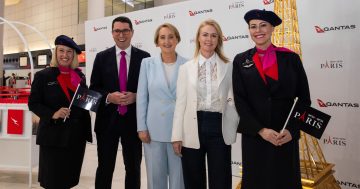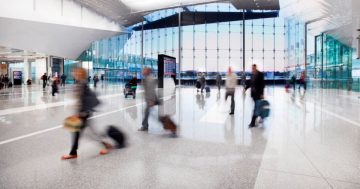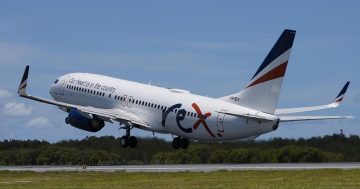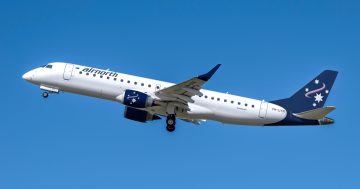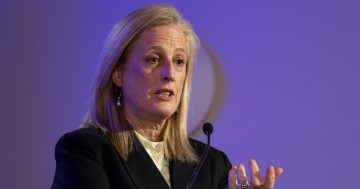Carrington Clarke* says frequent flyer programs reward airlines more than customers, as shown by the fact Qantas makes a bigger profit from its program than it does flying people overseas.
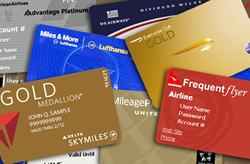 Frequent flyer programs were originally designed to reward passengers for sticking with an airline.
Frequent flyer programs were originally designed to reward passengers for sticking with an airline.
But then airlines noticed how much people valued the points and realised they could make money by selling them.
“About 10 years ago Qantas realised that there was an opportunity for them to commercialise this more widely and it was largely because of how consumers value those points both as a status symbol and as the opportunity to get flights,” Credit Suisse director of equity research, Paul Butler said.
Qantas is by far the most popular reward program in the country, with 12 million members, earning more than 120 billion points last year.
Qantas has more than 200 “partners”, which include the four major banks, supermarkets and insurance companies, who buy frequent flyer points from Qantas, which they can use to reward their own customers.
Rewards programs have become a huge generator of cash for the airlines.
Its frequent flyer program brings in more than $400 million a year in profit for Qantas, which is more than it makes flying people overseas.
It is also a very stable money earner for an industry that is known for its volatility in earnings and is highly reliant on oil prices.
Credit Suisse calculates the reward business is worth about $4 billion to Qantas.
Real cash now for future rewards
What is particularly attractive about this business for the airlines is that they receive real cash from their partners, but the points are not usually redeemed straight away and they control what they are redeemed for.
“The dominant reason it’s exceptionally good for the airlines’ cash flow is that they’re really getting a revenue stream for a very little cost stream,” chief executive of Airline Intelligence and Research, Dr Tony Webber said.
He should know — he was the Qantas chief economist for nearly four years.
Frequent flyer points are a type of currency, with the airline effectively an unregulated central bank.
Airlines determine the value of the points by deciding how many to issue, how many points are needed to purchase an upgrade or flight and what additional fees or charges the customer must pay.
This gives the airline a huge amount of power to control its cash flow.
Technically, the rewards programs “buy” seats and upgrades from the domestic and international divisions of the company.
But it is the airline that determines how many and which seats are available, which means the marginal costs are low.
“Without someone upgrading into business class from economy class that seat will go unsold, so having a passenger sitting in that seat rather than having an empty seat flown doesn’t add that much to the incremental cost to the airline,” Dr Webber said.
“That additional cost of upgrading the passenger is immaterial to the airline.”
Especially because passengers are slugged extra fees and charges in addition to the points when buying seats.
These include taxes and fees that are third party costs, such as airport charges, but the airline also adds a “carrier charge”, which it determines.
Airlines ‘really want the points to expire’
Frequent flyer points might be highly prized and people might store a great deal of value in them, but in the case of both Qantas and Virgin Australia’s programs, they can expire.
Steven Wren was, as he puts it, a loyal customer of the flying kangaroo for 18 years.
“Nothing gave me greater pleasure at an international airport than that big tailed plane,” Mr Wren said.
“So, the way I felt about Qantas is I was proud.”
For his loyalty, he had accumulated more than 300,000 points — enough to get him an around-the-world ticket in business class — but he was saving them for a specific purpose.
“My in-laws are originally from England and we lost my father-in-law many years ago and it was our intention to return his earthly remains to England to where he was born,” Mr Wren said.
But earlier this year he logged into the Qantas system to find all his points had disappeared.
He had been stung by a rule where points expire if there is no activity (no points have been earned or spent) on an account for 18 months.
Mr Wren is not alone.
There are social media groups dedicated to people in similar situations.
In Mr Wren’s case, Qantas stopped flying to the Gold Coast, replacing the full-service carrier with its budget alternative Jetstar, so he started using Virgin Australia instead.
For other people, it is because of a change of career, a new baby or an illness that can see them curtail their flying for a period.
Suzanne Anderson was a member of the Qantas Frequent Flyer program for more than two decades and used the airline to fly regularly around the country and the world for work.
Her family circumstances changed, so she stopped travelling as much, but she was still shocked when she logged in to her account to see her points balance had been wiped.
It was not just her points that had disappeared — her two daughters, then aged 10 and 12, also lost their total 32,000 points.
Dr Webber said it is in the interest of the airlines for the points to expire.
“They really want the points to expire, they have a strong incentive to expire the points,” he said.
“As soon as the points expire there is no cost associated to the airlines with these points being earned.”
Qantas ‘challenges’ customers to retrieve lost points
But the airlines also do not want to do anything that damages the brand or the appeal of the program.
After multiple calls to Qantas, Ms Anderson was offered a “personalised” Qantas Challenge whereby she could get the points back if she earned 2,500 points with two Qantas partners over six months.
The ABC has spoken to other people who were offered their own challenge.
“While we know it’s frustrating for people when their points expire, it’s really easy to stay active in the Qantas Frequent Flyer program,” the airline said in a statement.
“It’s as simple as earning or redeeming one Qantas Point within 18 months.”
* Carrington Clarke is a business journalist with the ABC. He tweets at @carringtonAU.
This article first appeared at www.abc.net.au.


